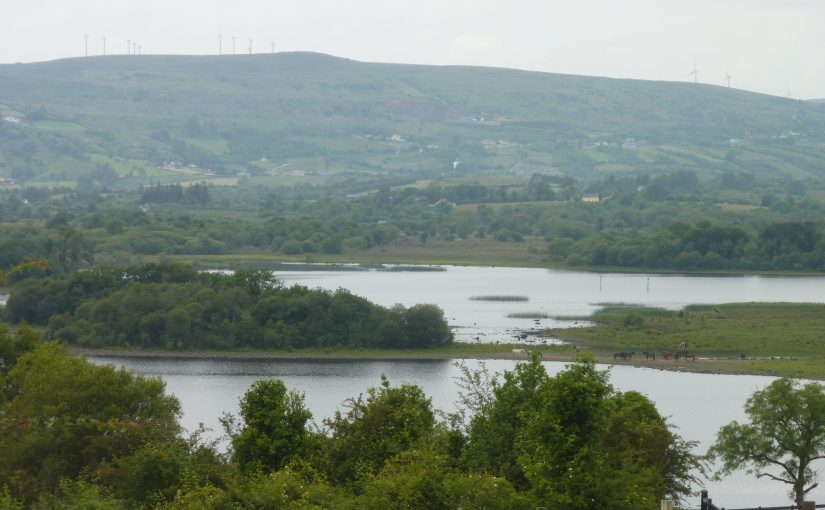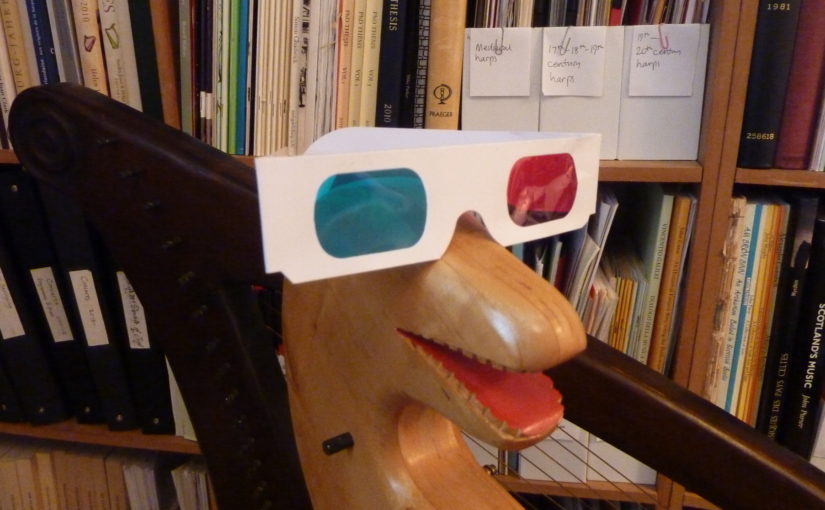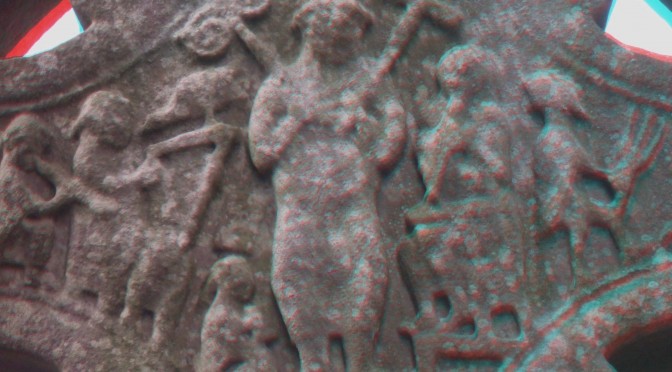Passing by Drumshanbo recently, I took a moment to stop and look for traces of Jerome Duignan.
Continue reading Jeremy Duigenan in Drumshanbo and MurhaunTag: 3D
Laser scan
I’m being slow at organising my data, but today I managed to re-sample the NMI Carolan harp laser-scan, and uploaded it to Sketchfab. This allows it to be easily embedded in web pages.
NMI Carolan harp (National Museum of Ireland) by Simon Chadwick on Sketchfab
Sketchfab does allow downloading of the low-res model but I have also made a link to the full-res version: OBJ mesh file. I use the MeshLab app to view and manipulate the OBJ mesh file
The scan data is marked cc-by (attribution) on Sketchfab but I think it is really public domain, since it is just a digital reproduction of a public-domain publicly owned artefact. You don’t need to attribute it to me – please give attribution and credit to the National Museum of Ireland, who own the original object and gave permission for the laser-scan to be made.
Here’s the video of Elaina Sugrue of Accuscan, making the scan back in the October 2018. You can see how the point-cloud, captured by the scanner, is rendered real-time on her laptop screen. This scanning process generates a huge amount of point data, which had to be processed, and separate passes with the scanner “registered”, to generate the finished mesh file.
I think it is important to be able to release this kind of primary data, as part of the project to understand the old harps more. This scan is a wonderful resource, but it needs a lot of further study to be of practical use. I have made many slices and renderings, which in due course I will publish.
This harp, being very damaged and distorted, requires also a lot of theoretical reconstruction work. Hopefully in time we can also publish reconstruction drawings. I am still thinking about how best to go about this.
I remembered my old post, Archaeological copies of old Gaelic harps from back in 2016. We are not moving at the rate I suggested of one per year, but this kind of study and documentation is an important part of this kind of long project.
The header photo is by Brenda Malloy, and shows myself and Elaina Sugrue at the National Museum of Ireland in October 2018
3d photography as a measurement tool
The bass end of the Carolan harp (which was sometimes called the Rose Mooney harp) is very damaged, and there has been a lot of movement inside the bass joint. However it’s not possible to measure this movement from the outside, because of the later repairs with iron straps and canvas bandages completely covering this part of the harp.
I had an idea to try and make stereo pair photographs of this part of the harp, to see if I could use them to measure the amount of movement both downwards (towards the bass end of the soundbox) and backwards (towards the back of the harp).
Monasterboice
On Saturday I was driving south towards Dublin when we spotted the road sign turning to Monasterboice. I zoomed off the motorway and we stopped to look at the amazing high crosses there. I was especially pleased to get a good stereo pair of the carvings on the Cross of Muiredeach.
Shrine of St Patrick’s Tooth
I have always been strangely fascinated by the shrine of St Patrick’s tooth. Its shape, like an outsized sporran, is kind of fun, and the idea of it containing an actual tooth from the head of St Patrick is just odd enough to be distracting.
Here’s my 3D photo of the 14th century embossed decoration on the reverse side. I am pretty pleased with how this stereo image has turned out.
3D harp photos
Karen Loomis suggested at her talk at Scoil na gCláirseach last week, that we try taking stereo pairs of photographs in the museums in Dublin on Tuesday. I am only just now starting to go through my pictures and see what I have. Here’s a first trial – grab your red/cyan goggles and see what you think!







